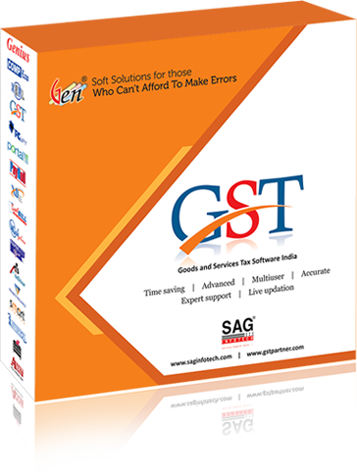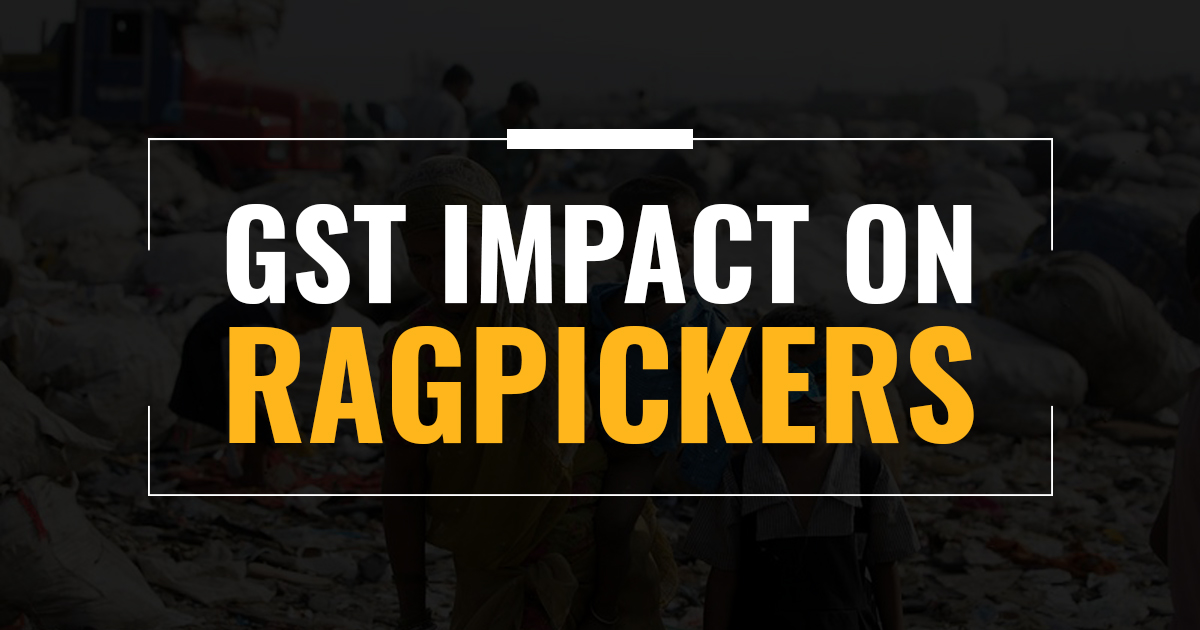The post-implementation effects of GST in India are being noticed by various sectors of the economy. The increased tax rate on secondhand and recycled items have greatly impacted the various related sectors, including the dealers of such items, the companies and recycling plants and most importantly, the ragpickers, who are claiming that the GST has decreased their earnings by as much as half.
Ragpickers are an important part of the goods recycling process in the country, and there are more ragpickers in India than any other country in the world. A ragpicker filters and collects recyclable items like plastic bottles, old footwear, plastic bags, old newspapers, etc., from the garbage and then sells these items to the dealer who then supplies these to the recycling plants where these items are recycled to produce new/recycled items from it.
So, all these people are connected through the recycling business, and any impact on any part of the process affects all of them. The most significant impact is faced by the ragpickers who are at the lowest point in the process.
How does GST impact the Ragpickers?
Many ragpickers are claiming that their earnings have depleted significantly after the launch of GST in India. There may be two possible reasons behind this, one is the increased GST rate on old items and second is the increase in prices of recycled items.
GST rate on old/ secondhand supplies
Under the GST, the GST tax rate on old items varies between 5 and 12 percent which is still higher than the previous tax regime. The dealers of these items are forced to increase the price due to increased GST, which has further decreased the demands of such items in the market. The condition is even worse as the GST rate on new items, in most cases, is less than the GST on the same items when they are sold secondhand. For example, GST on new shoes is 5% but when the same shoes are sold for recycling, a GST of 18% is levied on it.
Note: Before the 22nd GST council meeting the tax rates on old items varied between 12 to 18 percent.
Increase in price of recycled items
Now, one may think how does it still impact the ragpickers as they do not pay any GST. It is true actually; the ragpickers are not paying any tax directly from their pockets. Even the dealers who are paying the GST on the purchase of old items can charge it back from the recycling industries, and the industries, in turn, will charge the GST from their customers. So, in fact, no one, including the dealers, recycling industry and even the ragpickers should be in loss under GST. Then, why is the earning of these ragpickers going down?
The reason behind this is that the GST has decreased the cost of new items but at the same time, increased the cost of recycled materials. The increased tax rate on old items adds to the price of these items. The condition is so bad that the prices of recycled items are now almost equal to that of new products.
Consumers are, therefore, preferring to buy the new products over the recycled ones because of the reduced (or no) price difference. The demand of recycled items have decreased significantly after the GST launch, and this is the main reason why ragpickers are forced to sell their stocks at lower prices and bear the losses.






